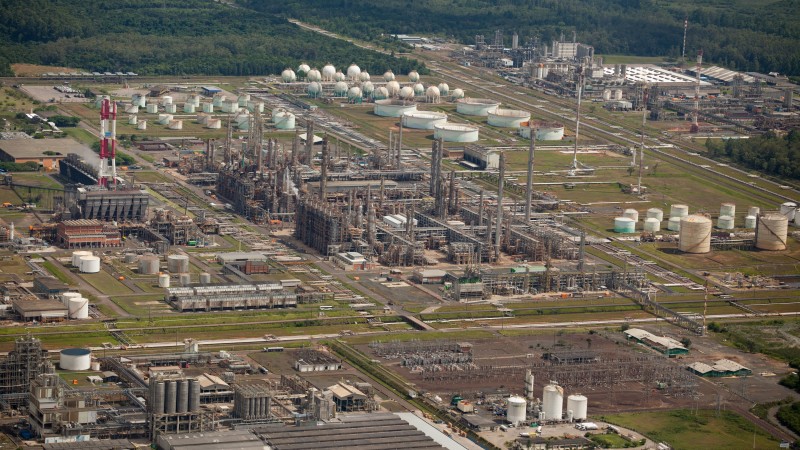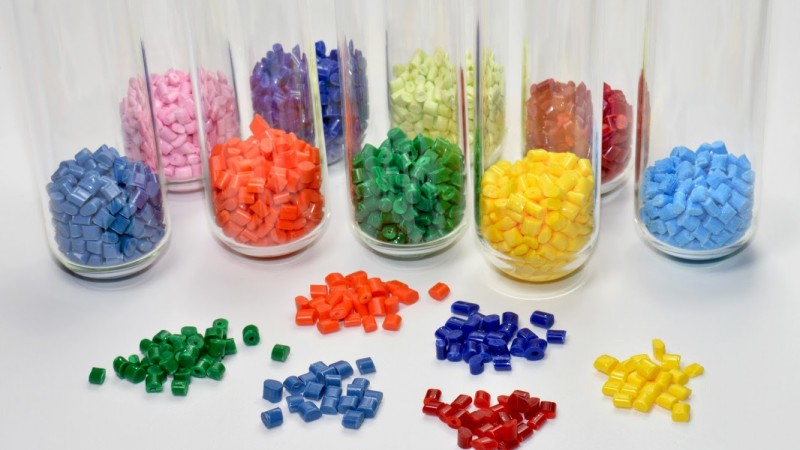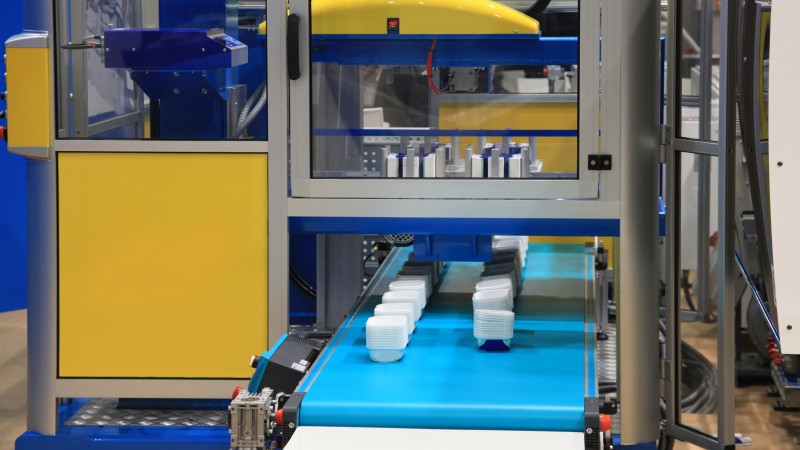Petrochemicals, Plastics and Rubbers
The Petrochemicals, Plastics and Rubber sector is rooted in Rio Grande do Sul and stands out for its constant innovation in the development and improvement of products. In Brazil, the sector developed from the middle of the last century, when the internal demand for plastic grew, and in four segments:
- The base industry, responsible for the production of basic petrochemicals, considered first generation – ethylene, propylene, butadiene, benzene and styrene. Its main inputs are naphtha and natural gas
- Following the chain, the manufacturing industry of petrochemical resins, products of the second generation of the chain, such as polyethylene, polypropylene, polystyrene and elastomers (rubber)
- The next segment in the chain, the 3rd generation, includes companies that transform these raw materials into plastic material and rubber products. While the petrochemical industry produces the raw materials for the rest of the production chain, the transformation of plastic and rubber is characterized by its multitude of uses and for being part of the value chain of a large number of productive sectors.
- At the end of the chain is the recycling of plastic products. This segment grows in the country and in the State
- More recently, innovations in the chemical industry allowed the development of green plastics, produced from vegetables, sugar cane, corn, beets and others, generating ethanol (1st generation) or biodegradable thermoplastic resins (2nd generation).
 In Brazil, there are four main Brazilian petrochemical poles, which integrate first and second generation plants. One of them is located in Rio Grande do Sul. The Triunfo Petrochemical Complex, opened in 1982, has a production capacity of 1.4 million tons/year. It has three innovation centers that stand out in Latin America. The first, Innovation & Technology Center, comprises 18 laboratories and six pilot plants (Braskem). This center, among other innovations, enabled the development of the first green polyethylene plant produced from sugarcane in the world. The Styrenic Technology Center (CTE) integrates four resin innovation and improvement laboratories (Innova). And the third research center, Polo Films, is made up of a laboratory for physical and chemical tests focused on quality, new applications and development of bioriented polypropylene films (CofipRS).
In Brazil, there are four main Brazilian petrochemical poles, which integrate first and second generation plants. One of them is located in Rio Grande do Sul. The Triunfo Petrochemical Complex, opened in 1982, has a production capacity of 1.4 million tons/year. It has three innovation centers that stand out in Latin America. The first, Innovation & Technology Center, comprises 18 laboratories and six pilot plants (Braskem). This center, among other innovations, enabled the development of the first green polyethylene plant produced from sugarcane in the world. The Styrenic Technology Center (CTE) integrates four resin innovation and improvement laboratories (Innova). And the third research center, Polo Films, is made up of a laboratory for physical and chemical tests focused on quality, new applications and development of bioriented polypropylene films (CofipRS).
Rio Grande do Sul, in the petrochemical, plastics and rubber sector, is a leader in innovation and has one of the largest industrial parks in the country. To this end, the sector can count on increasingly prepared researchers and professionals, trained by the network of universities, institutes and technical schools present in the State. In the municipality of São Leopoldo, the presence of the Polymer Transformation Center (Cetepo) stands out, which develops applied research and innovation projects and provides metrological services and technological consultancy for the sector.
The rubber and plastic materials sector (3rd generation) employed 412,431 workers in Brazil in 2016, 35,159 of which in Rio Grande do Sul. In this segment, the State is 2nd in the ranking of number of companies (1,288), accounting for 11.1% of Brazilian establishments producing rubber and plastic materials (MTE). The sector accounts for 2.3% of the added value of the Brazilian transformation industry and for 3.1% of the transformation industry of Rio Grande do Sul (CNI).
Brazil has 2.3% of the world production of thermoplastic resins, occupying the 8th position in the world ranking. And Rio Grande do Sul occupies the 2nd place in the ranking of producers among Brazilian states.
 The plastic transformation sector is spread across 14 Brazilian states, comprising 11,400 companies with revenues of R$65.2 billion. In this scenario, Rio Grande do Sul concentrates 1.2 thousand companies, occupying the 2nd position in the country. With 258 companies, the municipality of Caxias do Sul is the 2nd Brazilian municipality with the highest number of companies (Abiplast). Still on this sector, companies in the state are medium and small and offer a variety of products: components for the automotive, furniture, civil construction, refrigeration, and footwear industries, among others; packaging; recycled; household items; materials for thermal and acoustic insulation, etc.
The plastic transformation sector is spread across 14 Brazilian states, comprising 11,400 companies with revenues of R$65.2 billion. In this scenario, Rio Grande do Sul concentrates 1.2 thousand companies, occupying the 2nd position in the country. With 258 companies, the municipality of Caxias do Sul is the 2nd Brazilian municipality with the highest number of companies (Abiplast). Still on this sector, companies in the state are medium and small and offer a variety of products: components for the automotive, furniture, civil construction, refrigeration, and footwear industries, among others; packaging; recycled; household items; materials for thermal and acoustic insulation, etc.
According to the Union of Plastic Material Industries of Vale dos Vinhedos (Simplavi), the main market for products manufactured by companies linked to the sector is the domestic market, which is already consolidated.
With regard to machinery, equipment and the matrix and mold industry for plastics, the State, along with São Paulo and Santa Catarina, has the highest concentration of companies, with emphasis on the municipality of Caxias do Sul (Sebrae).
The manufacturing segment of rubber products employs, in Brazil, 87.4 thousand people, with Rio Grande do Sul contributing with 8.87% or 7.7 thousand jobs, ranking 2nd among the Federation Units.
The rubber sector in Rio Grande do Sul is quite diversified, with products serving the industry and the retail market. It supplies several production chains, especially the automotive sector. In Rio Grande do Sul, there are large industries producing tires, parts for the sectors of agricultural machinery and equipment and motor vehicles, profiles and rubber parts for different segments of industry.
The recycled segment, which generates 4th generation products, is responsible for employing 9,600 people, distributed across 1,000 companies, concentrated mostly in the Southeast and South regions of the country. Rio Grande do Sul, 4th among Brazilian states, has 110 recycling companies, which employ 815 people. In 2014, 615 tons of plastic waste were recycled in the country. It is estimated that for each ton of plastic material recycled in a month, 3.16 jobs are created for collectors and separators, 1.1 ton less plastic waste destined for urban landfills, a reduction of 1.53 tons of greenhouse gases and 75% energy savings (Abiplast).
Sector Opportunities

- Development of new products
- Substitution of materials in the automotive, construction and packaging sectors
- furniture sector
- Packaging industry, particularly flexible packaging
- Agricultural machinery and equipment sector
- molds
- automotive components
- Recycling
Business partnership opportunities
Check here the business possibilities in the sector.